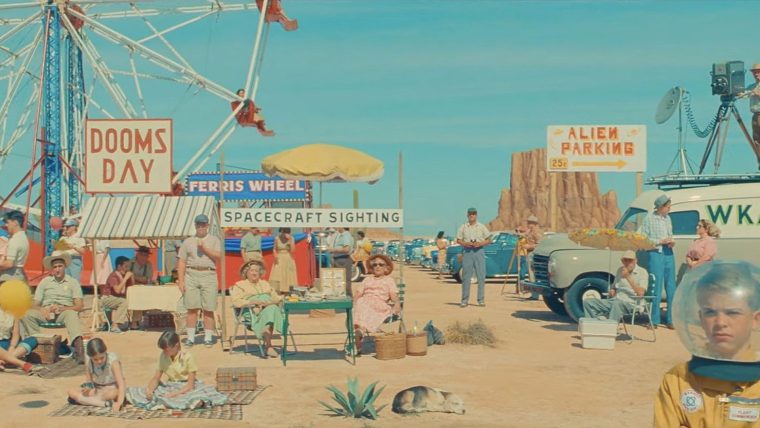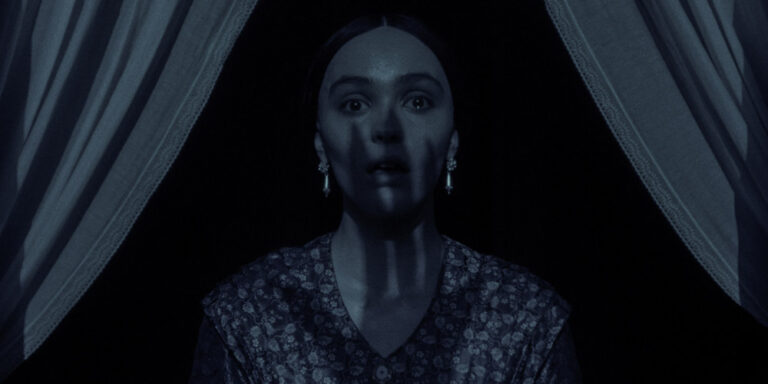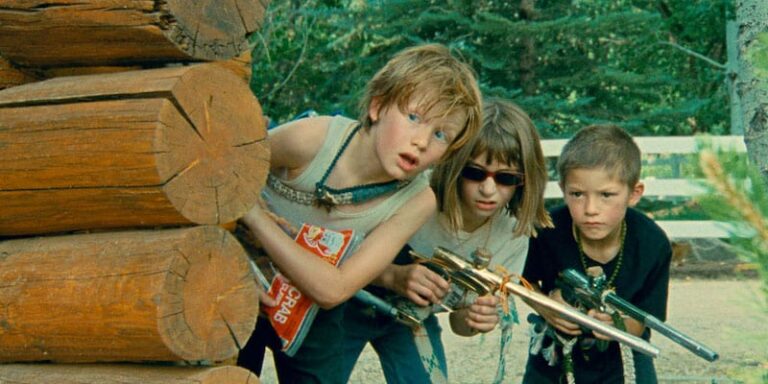Directed by Wes Anderson
Written by Wes Anderson
Starring:
- Jason Schwartzman as Augie Steenbeck
- Scarlett Johansson as Midge Campbell
- Tom Hanks as Stanley Zak
- Jeffrey Wright as General Gibson
- Tilda Swinton as Dr. Hickenlooper
- Bryan Cranston as the Host
- Edward Norton as Conrad Earp
- Adrien Brody as Schubert Green
- Liev Schreiber as J. J. Kellogg
- Hope Davis as Sandy Borden
- Steve Carell as the Motel Manager
- Matt Dillon as the Mechanic
- Hong Chau as Polly
- Willem Dafoe as Saltzburg Keitel
- Margot Robbie as Actress/Wife
- Tony Revolori as Aide-de-Camp
- Jake Ryan as Woodrow
- Jeff Goldblum as The Alien
Rating: ![]()
With Asteroid City, Wes Anderson has crafted a film so Andersonian it feels like a meta-prank—a self-conscious, hilariously contrived spectacle reveling in its own theatrical absurdity. This might be his most unapologetically stylized project yet, where formalism reigns, humor is delightfully stiff, and narrative structure exists purely to serve aesthetic obsession.
After playing with journalistic storytelling in The French Dispatch, Anderson now shifts to a meta-theatrical narrative about a play written by Conrad Earp (Edward Norton). We watch this play in dazzling color while periodic monochrome interludes—hosted by Bryan Cranston—explain its layered existence. The story itself is simple: a whimsical 1950s astronomy convention, a desert town, teenage geniuses, and an unexpected alien encounter.
Jason Schwartzman plays a detached father caught in a world that feels like an elaborate stage production. The characters speak as if rehearsed, their interactions rigid, their emotions almost nonexistent. Anderson leans so deeply into his critics’ complaints—his work being too sterile, too artificial—that he makes it the film’s central thesis. Asteroid City isn’t just self-aware; it’s a full-fledged cinematic hoax, mocking both the perception of Anderson’s work and the director himself.
The film is absurdly gorgeous, with colors reminiscent of vintage Technicolor yet sharpened with digital precision. Anderson’s control over every visual detail is absolute—his world exists in perfect symmetry, untouched by spontaneity. Some may find this suffocating, others hypnotic.
While not his most emotionally gripping work, Asteroid City is a fascinating experiment. The alien sequence is among Anderson’s funniest moments, and the star-studded cast—whether appearing for fleeting seconds or full scenes—adds to the illusion of theatrical grandeur. It may not resonate as deeply as his past films, but it remains a bold, beautifully orchestrated piece of cinematic self-reflection.









